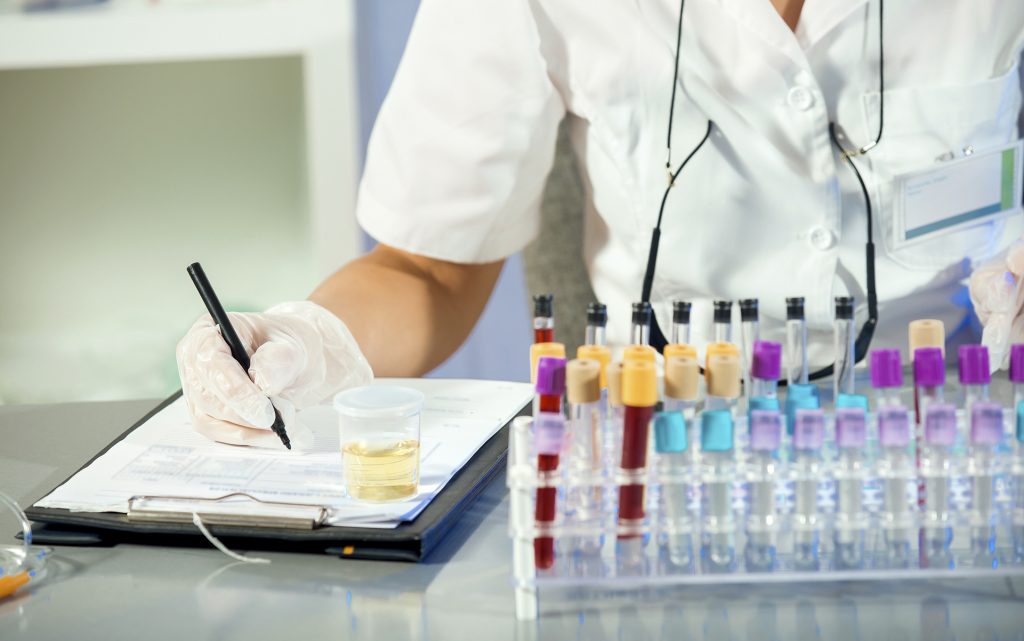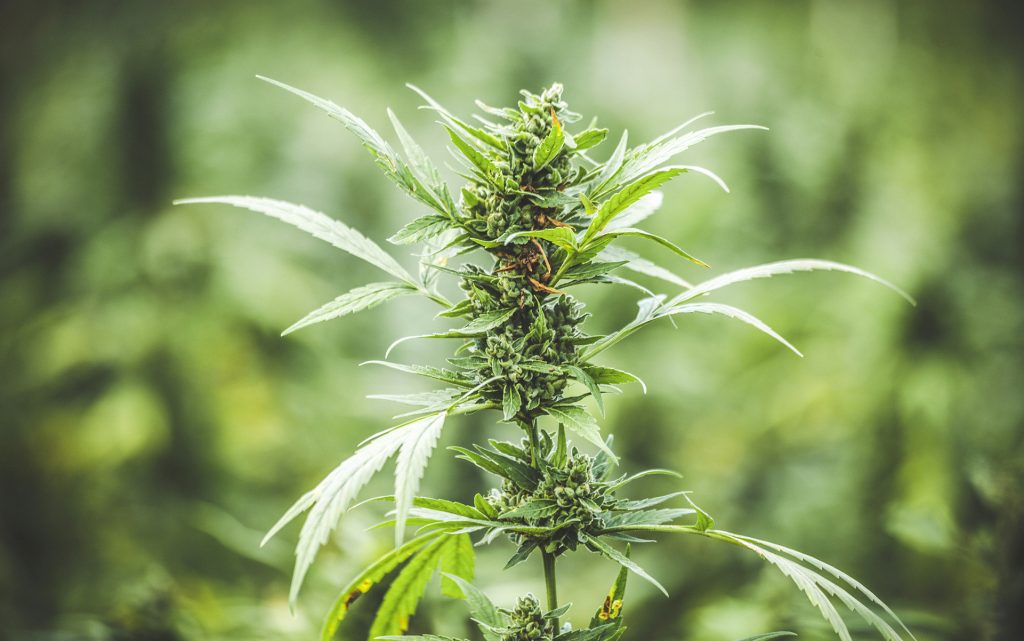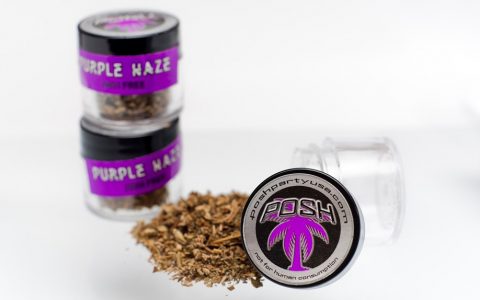How Long Does THC Stay in Your System?

Congratulations, you just landed your dream job! Your eyes widen as you read through the offer letter from your future boss. “Salary…health benefits…401k.” All that hard work has finally paid off! But as you reach the bottom, your heart stops. “Routine drug test…urine…marijuana.”
Panic
sets in. When was the last time you smoked cannabis? Two weeks ago?
Three weeks? And how long will it show up on a drug test?
Although
conventional wisdom says at least 30 days, the answer is not
straightforward. There are many different kinds of drug tests available,
which have varying levels of sensitivity and time periods that they
will detect cannabis in your system.
Meanwhile,
wide-ranging patterns of usage as well as a unique biology for each
individual make the calculation of a concrete detection window (the
number of days after ceasing usage that a drug test will continue to be
positive) even more complex.
“There is no typical window of detection,” says Ryan Vandrey,
an associate professor of psychiatry and behavioral science at Johns
Hopkins University. “It is highly variable from person to person and it
varies based on the frequency of use and the amount of use. So there is
no way of predicting or knowing how long someone would test positive
with any kind of certainty.”
How Do Drug Tests Work?

About
40 to 50 million drug tests are conducted by employers each year, which
analyze biological material including urine, hair, blood, saliva,
breath, sweat, and even fingernails. When cannabis is consumed, THC
levels temporarily rise in the body, which are detectable by blood tests
from several hours up to a day after a single usage. Although these
levels drop significantly after a few days, there are still other means
of determining recent usage.
THC, CBD,
and their metabolic byproducts, called metabolites, are lipid-soluble
and accumulate in fat reserves throughout the body. These molecules are
then slowly released over time, resulting in a considerably longer time
period for the body to purge itself of marijuana traces as compared to
other recreational drugs, especially for chronic users. Hair tests tend
to have the longest detection window—capable of registering the levels
of a non-psychoactive THC metabolite called 11-nor-delta9-caboxy-THC (THC-COOH) up to 90 days after cessation.
While
each drug test has its advantages, urine tests tend to be the test of
choice by most private employers and are the sole test recommended by
the Substance Abuse and Mental Health Services Administration (SAMHSA), a
branch of the U.S. department of Health and Human Services that sets standards
for drug testing of government employees. Like hair tests, these urine
screens do not directly measure the amount of THC present, but rather
the levels of the metabolite THC-COOH.
Once a specific
test is selected, the experimenter must then choose its sensitivity, or
the cutoff concentration of THC-COOH above which a test is considered
positive. The most common cutoff for most urine tests is 50 ng/mL, but
cutoffs can be as low as 15ng/mL and as high as 100ng/mL—each of which
result in widely different detection windows.
“Testing
is usually a two-step process,” says Vandrey. “The first step is a
qualitative yes/no with a typical cutoff of 50 nanograms per milliliter.
And if you see a qualitative positive, you then send it off for
confirmation with a more sensitive quantitative assessment that uses a
15 nanograms per milliliter cutoff.”
Despite the fact
that SAMHSA sets standards that regulate these urine tests, the vast
variability in cannabis use as well as individual differences in biology
and genetics stymie efforts to develop specific time windows for
detection.
How Long Does Cannabis Stay in Your System?

Meanwhile, each of us has a unique metabolism that processes cannabis at a different rate, further complicating the picture. Even amongst people of the same gender and age, individual lifestyle choices such as levels of exercise and eating habits may also affect the amount of time required to pass a drug test (those with higher levels of fat content store cannabinoids more readily than leaner folks).
Given
these preliminary grains of salt, however, there are several studies
that have explored this question over the years, which offer some
general guidance for those awaiting their impending drug test.
“...there is no way of predicting or knowing how long someone would test positive with any kind of certainty.”
Ryan Vandrey, associate professor, Johns Hopkins University
According to a 2005 review
by Paul Cary, director of the Toxicology and Drug Monitoring Laboratory
at University of Missouri, while detection times in excess of 30 days
do occur for some, they are largely an exception.
For example, a 1989 study
of chronic users showed a maximum detection window of 25 days at a
sensitivity of 20 ng/mL. Yet he points out that only one subject tested
positive after 14 days, and it took an average of just 9.8 days before
cannabinoid levels were no longer detectible. And while a 1984 study
testing chronic users at a cutoff of 50 ng/mL showed a maximum of 40
days to get clean, 8 out of the 10 subjects needed only 13 days to show
their first negative.
Consequently,
Cary offers some shorter estimates of detection windows that he
believes would be reasonable to expect given an individual’s frequency
of usage and the sensitivity of the particular urine test.
At
the standard 50 ng/mL cutoff, he states that “it would be unlikely for a
chronic user to produce a positive urine drug test result for longer
than 10 days after the last smoking episode.” And if this sensitivity is
dropped to the 20 ng/mL level, he posits that this detection window
extends to around 21 days for frequent users.
Meanwhile,
for those who smoke occasionally or for the first time, “it would be
unusual for the detection of cannabinoids in urine to extend beyond 3-4
days following the smoking episode” at the 50 ng/mL cutoff. This is
drawn out to around one week for a more sensitive 20 ng/mL threshold.
It’s
also important to remember that ‘occasional’ and ‘chronic’ each
represent opposite sides of the usage spectrum, and most users would
likely fall somewhere in the middle.
“I think these
[detection times] are reasonable,” says Ron Flegel, director of the
division of workplace programs at SAMHSA. “If it is an infrequent use or
a single use it usually takes just about 72 hours” at the 50 ng/mL
cutoff, whereas “chronic users are probably looking at seven to ten
days.”
Factors That May Impact Drug Test Results

Flegel
also notes that he often sees cases where individuals fluctuate between
positive and negative tests over a period of time.
“A
lot of people call us and say the person was negative and now they are
positive, and they say they haven’t used,” says Flegel. “But if a person
becomes dehydrated it concentrates the urine and when they exercise it
breaks down fat cells and releases THC,” both of which increase the
chances of a positive test. “So you will actually see that over time
they will go up and down between positive and negative.”
Meanwhile, Vandrey believes that even these general recommendations are unfounded, particularly for chronic users.
“In
a single acute use for a fixed dose we might see a range of variability
on the order of days,” he says. “So someone might be clean the next day
and others might be positive for seven days. And if you are talking
about frequent repeated use the variability just gets bigger. I have had
people who smoked cannabis all day every day be clean in a week and a
half, and others be dirty for two months.”
Does CBD Consumption Result in a Positive Drug Test?

And
what about those who consume other non-psychoactive cannabinoids such
as CBD (cannabidiol)? How long does it stay in your system, and will it
show up on a drug test?
Because
standard urine testing only analyzes metabolites of THC, those who
consume CBD/hemp oil have very little risk of testing positive. But
because hemp oils contain very small amounts of THC, those who use an
extraordinarily large amount of cannabinoid-rich oil products (greater
than 1000-2000 mg each day) might show a positive test on the initial
urine screen, which is susceptible to cross contamination from other
cannabinoids. However, this initial “false positive” would not hold up
to the more rigorous second round of confirmatory testing, which
specifically measures THC-COOH.
Passing a Cannabis Drug Test

But
for those who do consume cannabis, is there anything you can do prevent
a positive test or speed up the detoxification process?
Although
abstinence is an obvious initial answer, it may even be dangerous to
hang out with friends who are smoking. Indeed, in a 2015 study,
Vandrey exposed a small group of participants to secondhand smoke in
both ventilated and non-ventilated rooms. He showed that some
participants who sat in the non-ventilated room tested positive for
THC-COOH, with concentrations in urine exceeding 57 ng/mL.
“You
can’t inadvertently have secondhand smoke exposure to the extent that
would trigger a positive urine test, but it is possible,” says Vandrey.
“So if you are subject to drug testing and are surrounded by a bunch of
people smoking weed in a closed up room, you should leave.”
Many who are facing a drug test but are unwilling to fully give up cannabis turn to synthetic cannabinoids
in the hopes of cheating traditional tests. Yet, these alternatives,
commonly referred to as “K2” or “spice,” are unpredictable, showing side
effects ranging from nausea to seizures that have caused a spike in overdoses
in recent months. And many private companies now include tests for
synthetic cannabinoids in their repertoire, making this approach both
dangerous and futile.
Others who continue to smoke may attempt to tamper with their urine, adding chemicals such as pyridinium chlorochromate
or peroxidase that eliminate THC-COOH in the sample. Most testing
agencies, however, will screen for these compounds and being caught is
often just as bad, if not worse, than a positive test.
“In
our programs if you adulterate a sample it is considered a refusal to
test, and in most situations you are fired,” says Flegel.
How to Get Rid of THC in Your System

For
those who are able to quit, one common technique is to flush out your
system by drinking a lot of water. This can be a good approach, as
dehydration will increase the concentration of your urine and could
increase your chances for a positive result. If your urine is diluted
too much, however, it will automatically invalidate the results and you
will have to repeat the test. So hydrate carefully.
A
potentially more effective tactic for speeding up the detoxification
process might be cutting back on the Big Macs and hitting the gym.
“Fasting
is going to burn fat, which is going to release more cannabinoids,”
says Vandrey. “If you have more fat then there is more tissue for the
cannabinoids to get stored in so you might get a little bit longer
window of detection.”
Nonetheless,
it is important to give your body enough time to clear out these stored
cannabinoids, as exercise or fasting will likely result in a transient
spike in measurable THC metabolites as they exit the body.
If
you know you have an upcoming drug test, not all hope is lost. Given
the current detection windows for standard cannabis tests, it’s likely
you will be able to pass a urine test as long as you are not an
extremely heavy user and are given sufficient advanced notice. But if
your employer tests you regularly and without prior notification,
perhaps it wasn’t a dream job after all.










No comments:
Post a Comment